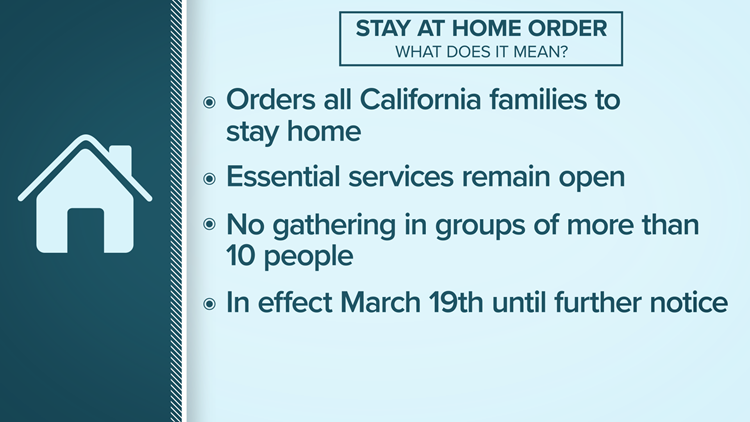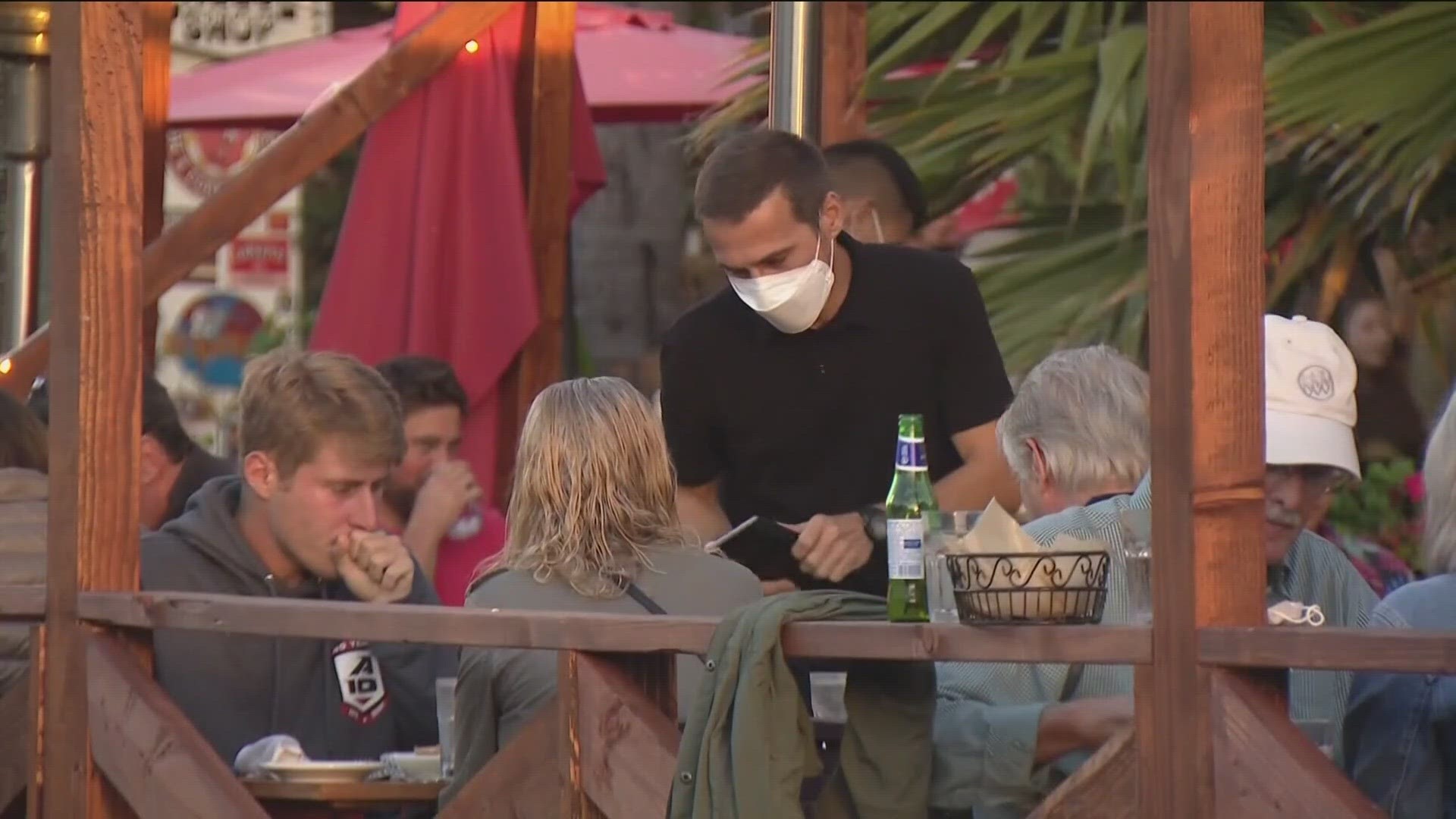SAN DIEGO COUNTY, Calif. — With increasing concerns over the community spread of the coronavirus (COVID-19), the state of California ordered residents to “stay at home” on Thursday, March 19.
A stay-at-home order might seem obvious; It generally means stay at home and practice social distancing.
For those who live in an area like San Diego that has now mandated residents to stay at home, here is what you need to know.
Read the full executive order from California HERE.
Read the list of what jobs and job functions are considered "essential critical infrastructure workers" by California HERE. This is a list of workers (by sector) who are considered essential critical infrastructure (as guided by the federal government) and should continue reporting to work as normal.
What is a Stay at Home order?

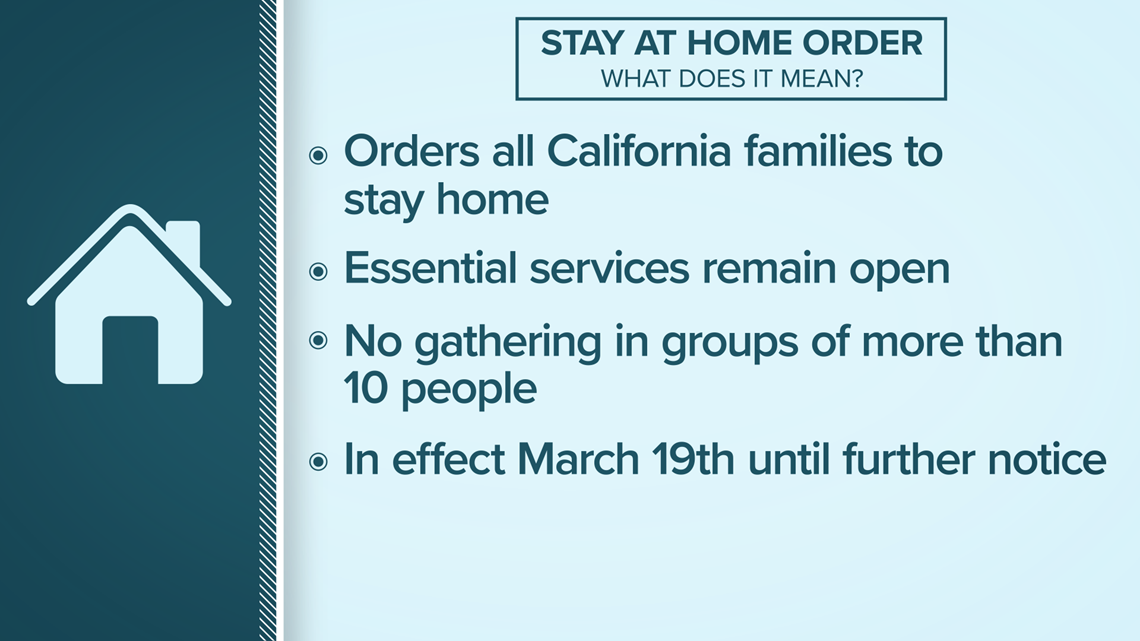
A stay at home order means that all non-essential travel is prohibited. If you don't need to leave your home, you shouldn't. You may be tempted to take the bus downtown or hop in the car to see some friends, but this could put others and yourself at risk. While many people are now working from home, some jobs are still considered "essential critical infrastructure" by the federal government and should continue to work as normal.
"We are confident the people of California will abide by it," said Governor Newsom.
What types of businesses must close because of the California Stay at Home order?

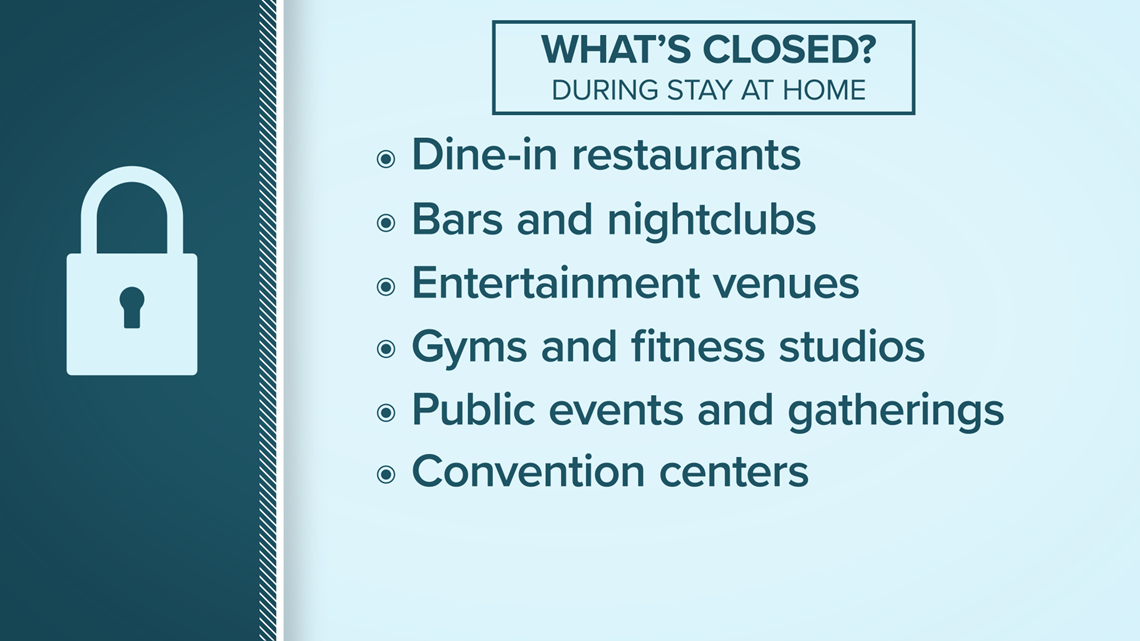
According to Governor Newsom, dine-in restaurants, bars & nightclubs, entertainment venues, gyms & fitness studios, public events, and convention centers are ordered to close.
What types of businesses can stay open during the California Stay at Home order?

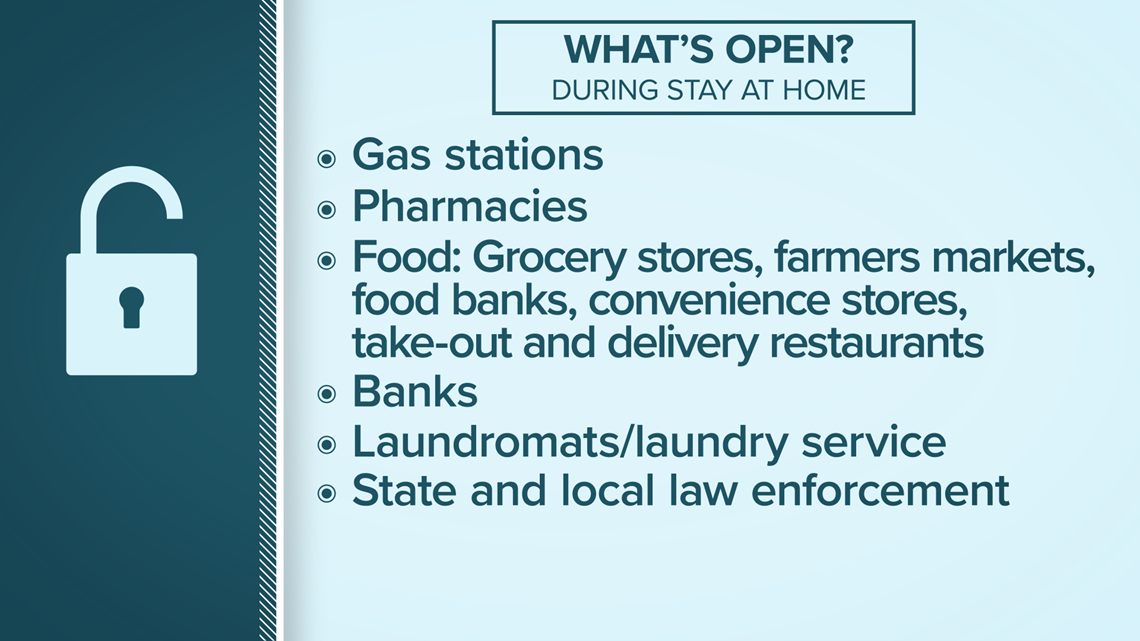
This is the list of
As such, it may seem like your only option is to hole up at home, but the order does allow for some exceptions.
You may leave your home to get medical supplies or food, and the order even makes an exception for “outdoor activity.”
While practicing social distancing is essential, certain activities, such as walking the dog, hiking, or running, are still allowed. This is important because getting outside and exercising is a key part of maintaining your mental health, especially in uncertain times such as these.
“This is a dynamic situation and there are specific cases that people are bringing to us for which we don't have great guidance," Assemblyman Todd Gloria told News 8.
Gloria has fielded several calls from people confused about what makes a service essential or not.
“I think that in most cases, it's fairly black and white but there are exceptions to the rule. You mentioned car dealerships. Car maintenance is expressly stated as being an essential service," Gloria said, "However, car sales don't seem to be in that same category."
Gloria says that while law enforcement doesn't have the resources to shut every place that violates the order down, He's hoping business owners will use common sense, noting the Department of Homeland Security is a good resource.
They've compiled a list of essential services covering 16 sectors including communications, energy, healthcare, and public health. The state specified childcare and construction as being within those areas.
Gloria advises people to call their local representative with further questions, saying while the state's actions may seem extreme, they're necessary, "This is being done to save lives."
Essential state and local government functions will also remain open, including law enforcement and offices that provide government programs and services.

NEWS 8 joined forces with The San Diego Foundation to raise IMMEDIATE, EMERGENCY FUNDS for our most vulnerable neighbors in need. Here is how you can help.
BACKGROUND:
According to the CDC, coronavirus (COVID-19) is a family of viruses that is spreadable from person to person. Coronavirus is believed to have been first detected in a seafood market in Wuhan, China in December 2019. If someone is sick with coronavirus, the symptoms they may show include mild to severe respiratory illness, cough, and difficulty breathing.
Currently, there is no vaccine, however, the CDC suggests the following precautions, along with any other respiratory illness:
Avoid close contact with people who are sick.
Avoid touching your eyes, nose, and mouth.
Stay home when you are sick.
Cover your cough or sneeze with a tissue, then throw the tissue in the trash.
Clean and disinfect frequently touched objects and surfaces using a regular household cleaning spray or wipe.
Wash your hands with soap and water for a minimum of 20 seconds.
The CDC also says facemasks should only be used by people who show symptoms of the virus. If you’re not sick, you do not have to wear a facemask. The CDC says the immediate risk to the U.S. public is low.

